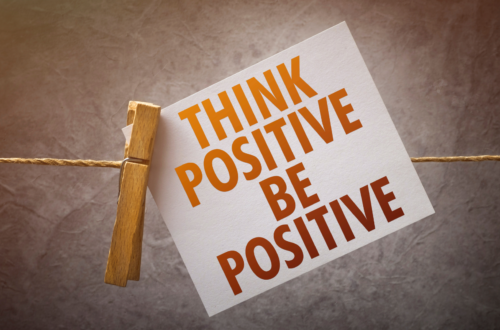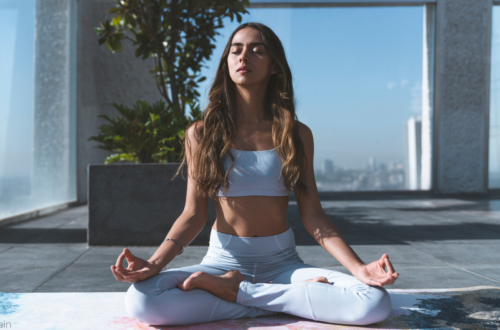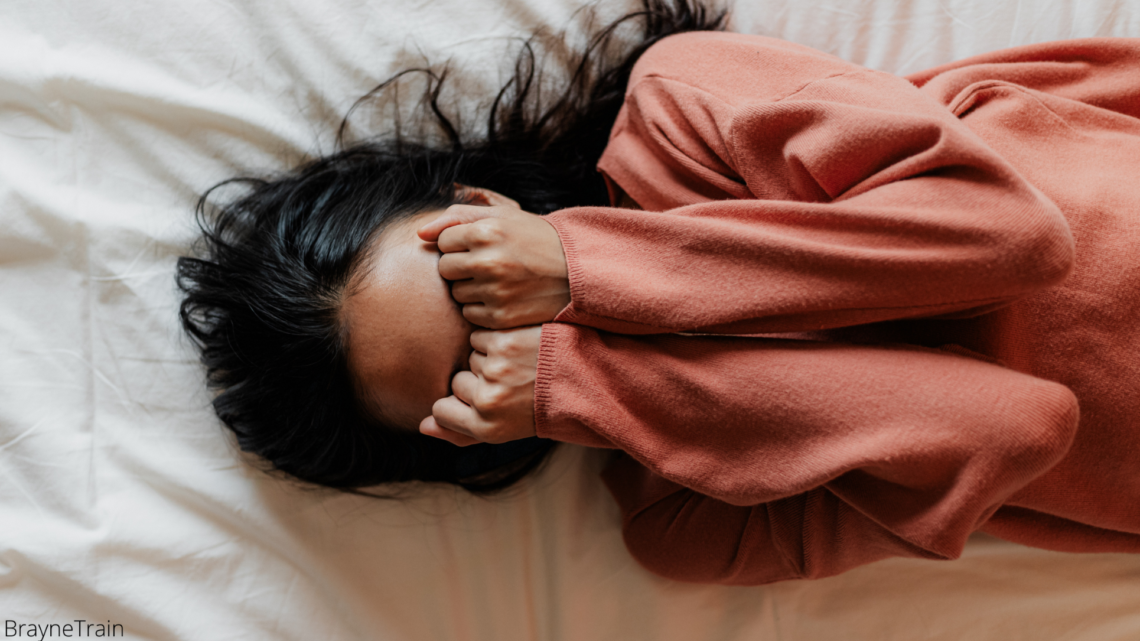
How to Get Rid of Morning Anxiety; A 5 Step Morning Routine!
For many people, morning anxiety is a real and serious problem.
Whether it’s caused by insufficient sleep, stress from the previous day, or other emotional triggers, morning anxiety can make it difficult to get out of bed and start the day.
What causes morning anxiety?
Cortisol awakening response (CAR) is the leading cause of morning anxiety. CAR is a sharp increase in cortisol levels that occurs upon waking up.
Cortisol is a stress hormone that helps regulate energy levels, mood, and other functions. CAR is normal and necessary for survival; however, when it is experienced regularly, it can lead to morning anxiety.
There are several reasons why CAR may cause morning anxiety, such as changes in sleep patterns, work stress, or personal relationships.
To learn about practicing mindfulness for reducing stress click here.

What are the symptoms of morning anxiety?
Symptoms of morning anxiety can include feeling worried or tense, having a sense of impending doom, feeling irritable or on edge, difficulty concentrating, and sweating.
Morning anxiety can also cause physical symptoms such as a racing heart, chest pain, shortness of breath, and stomach upset.
Most people with morning anxiety also have trouble falling asleep or staying asleep.
So if you’re struggling with morning anxiety, you can do a few things to help get rid of it.
One strategy that often proves effective in getting rid of morning anxiety is establishing a consistent morning routine and sticking to it.
Here is a step-by-step guide for creating a great morning routine:
Step 1: Wake Up One Hour Earlier.
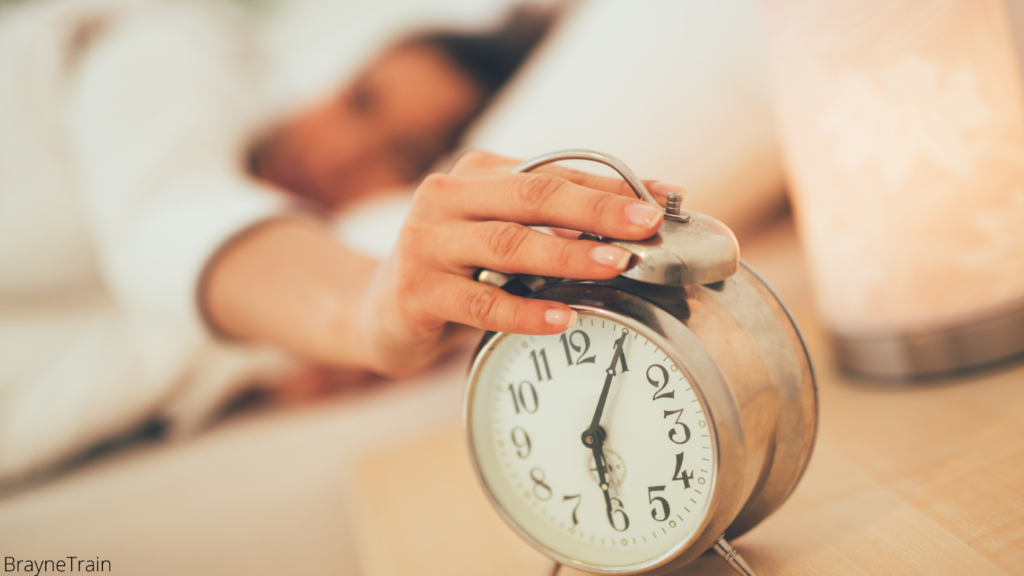
A recent study published in The journal JAMA Psychiatry has found that shifting your sleep schedule back just one hour – that is, going to bed one hour earlier and waking up one hour earlier than usual – can have significant benefits for mental health.
According to the study, individuals who made this slight shift in their sleep schedule experienced a 23 percent lower risk of depression than those who did not change their sleep habits.
While the exact mechanisms behind this effect are not yet understood, researchers believe that waking up early may help to increase exposure to light, which in turn boosts serotonin levels and lifts mood.
Furthermore, waking up early means having more waking hours in which you can engage in meaningful activities or pursue your passions, thus providing greater fulfillment and a sense of purpose.
Overall, it seems clear that waking up a little bit earlier can help you feel happier and more mentally balanced.
Step 2: No Phones, Computers, or TV for the first hour after waking up.
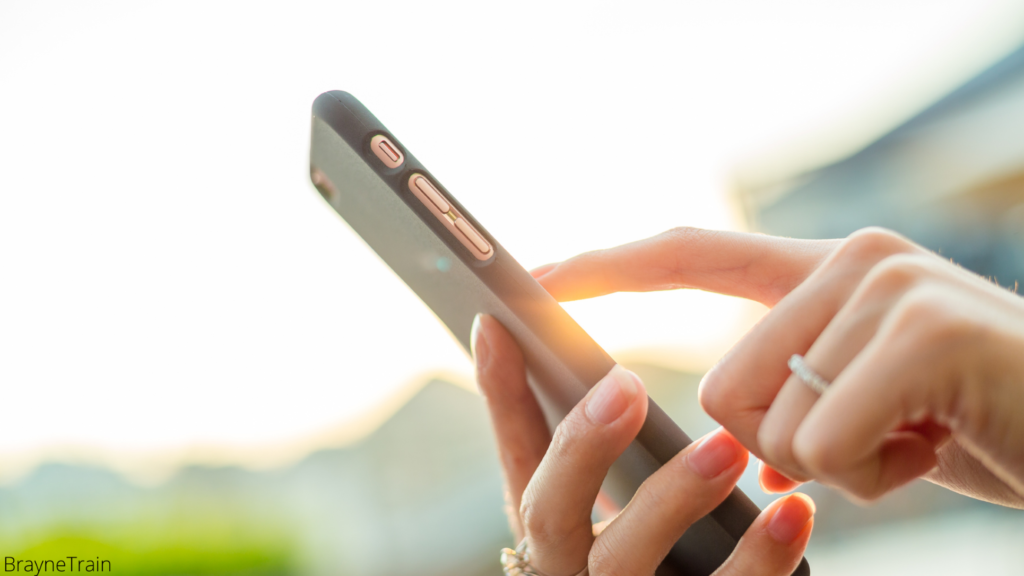
It is commonly believed that the first hour after waking up can significantly impact your day.
Many experts recommend that you do not check your phone, turn on the TV, or check your emails during the first hour after waking up.
Studies show that early morning exposure to technology and media can have detrimental effects on the mind and body throughout the day due to triggering the stress hormone.
By letting yourself disconnect from technology early on and start the day on a positive note, you can maximize your productivity, creativity, mental sharpness, and overall happiness throughout the day.
Step 3: Meditate
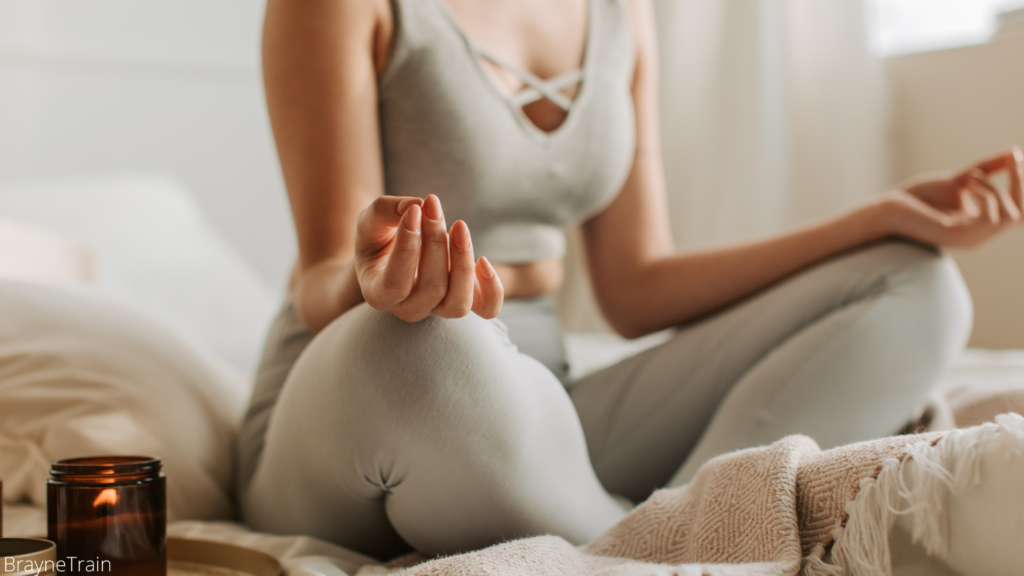
Meditation is a powerful tool for calming the mind and releasing stress and negativity.
Numerous scientific studies have shown that meditation can help boost mood, reduce anxiety, and promote feelings of happiness and joy.
One of the most effective times to meditate is in the morning, as this can set the tone for your entire day.
By taking just a few minutes at the start of your day to clear your mind and focus on your breath, you can set yourself up for a more productive and peaceful day ahead.
To learn about Breathwork and how it can help reduce anxiety click here.
How to Start practicing Meditation:
If you’re new to meditation, here is how you can start:
- Find a quiet place where you can sit by yourself without distractions.
- Once seated, simply close your eyes and focus on your breath.
- Take a deep breath in and hold it for 3 seconds.
- Exhale.
- repeat for 3 to 5 minutes.
You can start with just a few minutes of meditation and then gradually increase the amount of time you meditate each day.
With regular practice, meditation can help reduce stress and promote happiness and relaxation.
To learn about how just 5 minutes of meditation can reduce your anxiety click here.
Step 4: Journal
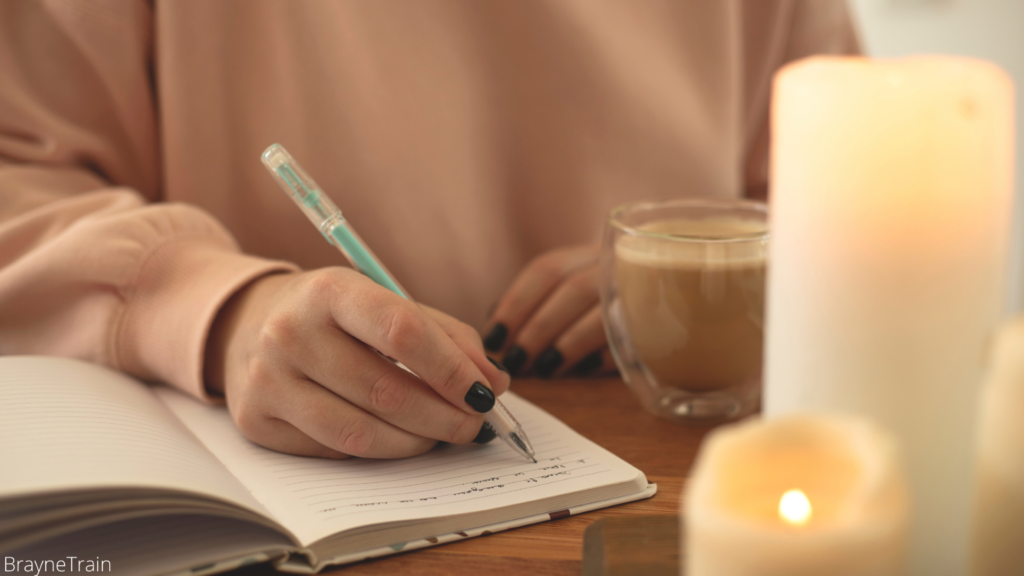
Journaling is a simple yet powerful way to ease anxiety.
By taking a few minutes in the morning to write down your thoughts and goals, you can gain clarity and focus on what’s important.
Journaling also allows you to track your progress and see how far you’ve come.
Additionally, journaling can help you understand your triggers and develop coping mechanisms.
Journaling can help you set goals and intentions for the day, which can help reduce anxiety about the future.
Finally, journaling can help you develop self-awareness and understanding, which can help manage anxiety.
Step 5: Exercise; Get your body moving!

Starting your morning with a 20-30 minute exercise routine can have numerous mental and physical health benefits.
Physical activity releases endorphins, which help promote feelings of happiness and boost mood. Also, it helps get your heart rate going and get your blood pumping.
Exercising in the morning can be particularly helpful for those struggling with anxiety and stress, as regular exercise can help relieve tension in the body and promote feelings of calm and well-being.
In addition, engaging in regular physical activity has been shown to positively affect hormone levels, help enhance cognitive function, improve sleep quality, and boost overall energy levels.
Takeaway:
If you want to create a morning routine for getting rid of your anxiety, start by waking up one hour earlier than you usually do. Resist the urge to check your phone in the morning – give yourself some time to ease into the day. Once you’re awake, meditate and journal about your feelings and goals for the day. Finally, get your body moving with a workout or some stretching. If you can commit to doing this every morning, over time, you will notice a decrease in your anxiety levels and better mood, overall health, and increased happiness. Thank you for reading!
References:
Daghlas I, Lane JM, Saxena R, Vetter C. Genetically Proxied Diurnal Preference, Sleep Timing, and Risk of Major Depressive Disorder. JAMA Psychiatry. 2021;78(8):903–910. doi:10.1001/jamapsychiatry.2021.0959


